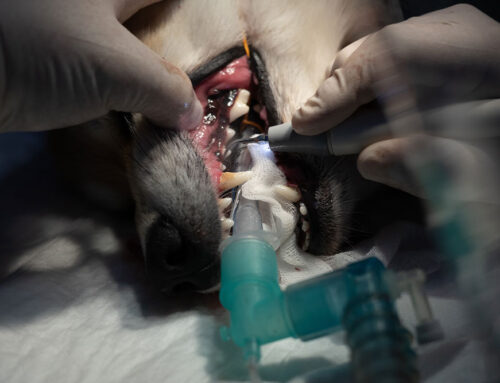The primary care-specialist veterinarian partnership should focus on collaboration that improves patient care and client experience, but these relationships are often strained because of poor communication, undesirable case outcomes, and client experience. Many factors influence the primary veterinarian’s decision to refer, but addressing these concerns can help you win over your local rDVMs, gain more referrals, and help more pets. Here are the top five reasons primary veterinarians hesitate to refer.
#1: Referral is costly for clients
Primary veterinarians know that referral is costly for clients, so they reserve this option as a last resort, or decline to even offer the option. Primary veterinarians must trust their referral partners to overcome this barrier and convince clients that the expense is worthwhile. Establishing relationships with local rDVMs through VESPECON’s services is a good start.
You should also focus on fee transparency. We know that estimating a pet’s entire care plan cost without seeing them first is difficult, but providing primary veterinarians with your basic fee schedule can help them and their clients know what to expect. You could also include a “meet the doctor” insert with a photo, qualifications summary, and success stories to help rDVMs and clients understand your service value.
#2: Scheduling prompt appointments is difficult for clients
Like most veterinarians in this current business climate, your schedule is probably booked out a few weeks or months in advance, making client scheduling more difficult. Primary veterinarians may hesitate to refer or choose another practice if the wait is too long—another area where transparency and communication can be helpful. If rDVMs understand which conditions can wait a few weeks and which truly are emergencies, they will more likely accept a longer wait time.
VESPECON can also help by offering primary veterinarians virtual specialist consultations, so they can better understand and manage their case while the client waits to see you. When you join the VESPECON referral specialist network, we reserve spots in your schedule for our clients, so they not only get in faster, but they also have been appropriately worked up and are ready for specialist care.

#3: Clients feel overwhelmed by the referral process
Primary veterinarians may fail to offer easily overwhelmed clients a referral, which can be lengthy and complicated. VESPECON can help streamline your referral process by pre-screening cases with our virtual consulting service. If the patient truly requires in-person referral, we can schedule clients directly with your office, fill your appointment book, reduce incoming phone calls, and provide clients a hassle-free experience. Streamlining referrals through our service also ensures your scheduled patients have received appropriate treatment and all necessary diagnostics to provide you with a “teed-up” case.
#4: Client or rDVM dissatisfaction with previous treatment outcomes
Individual referring veterinarians may be biased against specialty care because of previously poor patient outcomes or a particularly bad client experience. You can’t prevent every disgruntled client or poor case outcome, but you can help minimize client dissatisfaction by ensuring they understand treatment success rates for their individual pet. Clear communication with written explanations for patient conditions, potential treatment outcomes, and follow up care expectations can help to prevent client and rDVM misunderstandings. Sincere condolences and a heartfelt card can also go a long way for patients who pass away while you are caring for them.
#5: Poor communication from specialist to referring veterinarian
Communication is the backbone of any good rDVM-specialist relationship—without this, trust in your services will quickly erode. Strive to send electronic communications or a phone call summarizing a patient’s visit within 48 hours or, ideally, 24 hours or less for hospitalized or critical pets. The primary client-veterinarian relationship belongs to the referring vet, and clients likely will call their rDVM following a specialist visit for patient updates, to ask questions, or to schedule follow up care. If the rDVM hasn’t received communications by this point, both practices look bad, and patient care may suffer.
Improving practice-to-practice communications can be as simple as joining VESPECON’s specialist referral network. Primary veterinarians can consult with our virtual team for case management guidance. Then, our concierge team acts as a liaison between rDVM and specialists to schedule in-person client visits, transfer patient records, and build your relationship with local practitioners.
Addressing rDVM concerns and streamlining the referral process can help your practice attract more clients and gain local veterinarians’ trust. Visit our VESPECON website to learn more about our specialist services, or sign up here to get started.







Leave A Comment